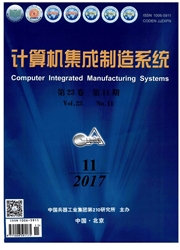

 中文摘要:
中文摘要:
为研究产品质量差异对外来企业进入模式和供应链成员决策的影响,建立了上游企业进入模型.研究表明,进入带来的竞争迫使在位企业降低定价,削弱供应链“双重边际效应”,增加消费者的价值剩余.在进入者选择直销(模式RD)、通过在位零售商(模式R)和非在位零售商(模式RR)销售其产品的三种模式中,模式R对零售商最有利,模式RR对制造商最有利;当质量差异较大时进入者选择模式RD;否则选择模式RR.当质量差异较大时,制造商提供的利润共享合约不仅可以实现自身利润最大化,还可以实现供应链协调,但进入者进入影响协调利润的分配比例,即影响在位者的谈判能力;当质量差异很小时,制造商不提供利润共享合约,即在位企业独立决策为最优策略.
 英文摘要:
英文摘要:
To investigate the impact of product quality diversity on entry mode and incumbent firms' decisions, the entry model for upstream enterprises was established. The results showed that the competition could weaken the negative effects of double-marginalization and increase customer surplus value. In the three alternative modes of sell- ing directly (mode RD), selling through the incumbent retailer (mode R) and selling through another retailer (mode RR), the incumbent retailer preferred mode R and the incumbent manufacturer preferred mode RR. The entrant supplier preferred mode RD when his product quality was far less than the incumbent product quality, otherwise, he preferred mode RR. A profit sharing contract provided by the incumbent manufacturer could increase his profit, but also coordinate the supply chain when his product quality was far higher than that of the entrant. In such a case, the entry could affect a profit allocation proportion that the negotiation ability between the incumbent firms. Otherwise, independent decision making without coordinating the retailer was optimal for the manufacturer.
 同期刊论文项目
同期刊论文项目
 同项目期刊论文
同项目期刊论文
 期刊信息
期刊信息
